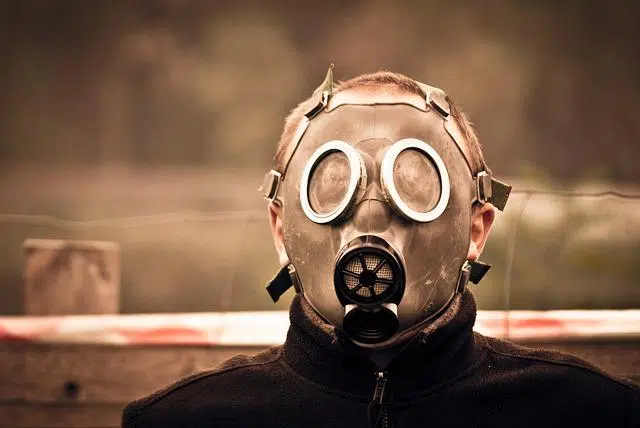
The toxicity of a substance is linked to the damage it can cause to an organism.
Toxicity is the degree of effectiveness of substances that, due to their composition, are considered toxic . It is a measure that is used to identify the toxic level of various fluids or elements, both affecting an organism as a whole (for example, the human body) and a substructure (a cell ).
The specialty dedicated to analyzing and observing poisons is toxicology . It is common for this branch to classify toxic entities into three: chemical substances (which can be organic, such as the venom found in some snakes, or inorganic, such as heavy metals ), physical entities (such as X-rays) and biological toxicity (caused by viruses or bacteria ).
The toxicity of something depends on multiple factors, such as the time of exposure to the substance in question, the number of times you have been exposed, and the route of ingestion or administration. We speak of acute exposure when a single contact can cause severe damage, while chronic exposure is one that involves a toxin affecting for an extended time.
Handling of highly toxic substances
Handling highly toxic substances poses a risk to health and the environment. That is why there are various safety protocols that protect workers in contact with these substances and preserve life. In Europe , there is REACH, as the system for registration, evaluation, authorization and restriction of chemical substances is known, which seeks to publicize the danger of toxic fluids, protect people from dangerous compounds and promote innovation for the development of safer substances.
Governments often implement regulations to limit the circulation and use of hazardous substances, in addition to carrying out supervision and inspections in workplaces.

Using safety elements is essential when in contact with highly toxic materials.
The case of foods modified in laboratories
Transgenic foods are products that have been made with an ingredient extracted from a gene from another species; This work can be carried out thanks to the discoveries of biotechnology and its objective is to provide the final product with a characteristic that it does not possess. For example, in the case of transgenic plants, the modification can prepare them to more strongly resist pests or any other complications that could threaten their life.
Although many people rely on technological advances and consider that the use of these modified products can be very useful to undermine world hunger; Scientific research reveals that behind its advantages lie hundreds of complications that threaten ecology and health.
Without going any further, research in France revealed that those rats that were fed transgenic corn showed the appearance of cancerous tumors and a lower life expectancy. This would indicate that the ingestion of these products could have severe long-term consequences on the health of the species; without mentioning the irreparable damage to the environment , in terms of reduction in diversity and other obvious consequences.
Dangers associated with the toxicity of GMOs
The toxicity of transgenic products can be quite high if one takes into account that when sowing a seed that has been manipulated in the laboratory, it will act on the soil differently than one that has not gone through that process; It will modify not only the characteristics of the soil, but also the space since by becoming stronger than other plants, it could threaten the existence of other species .
If we take into account that it would also subsequently cause severe damage to those who consume its harvest, it becomes evident that betting on this type of production can be disastrous for the subsistence of our planet.
